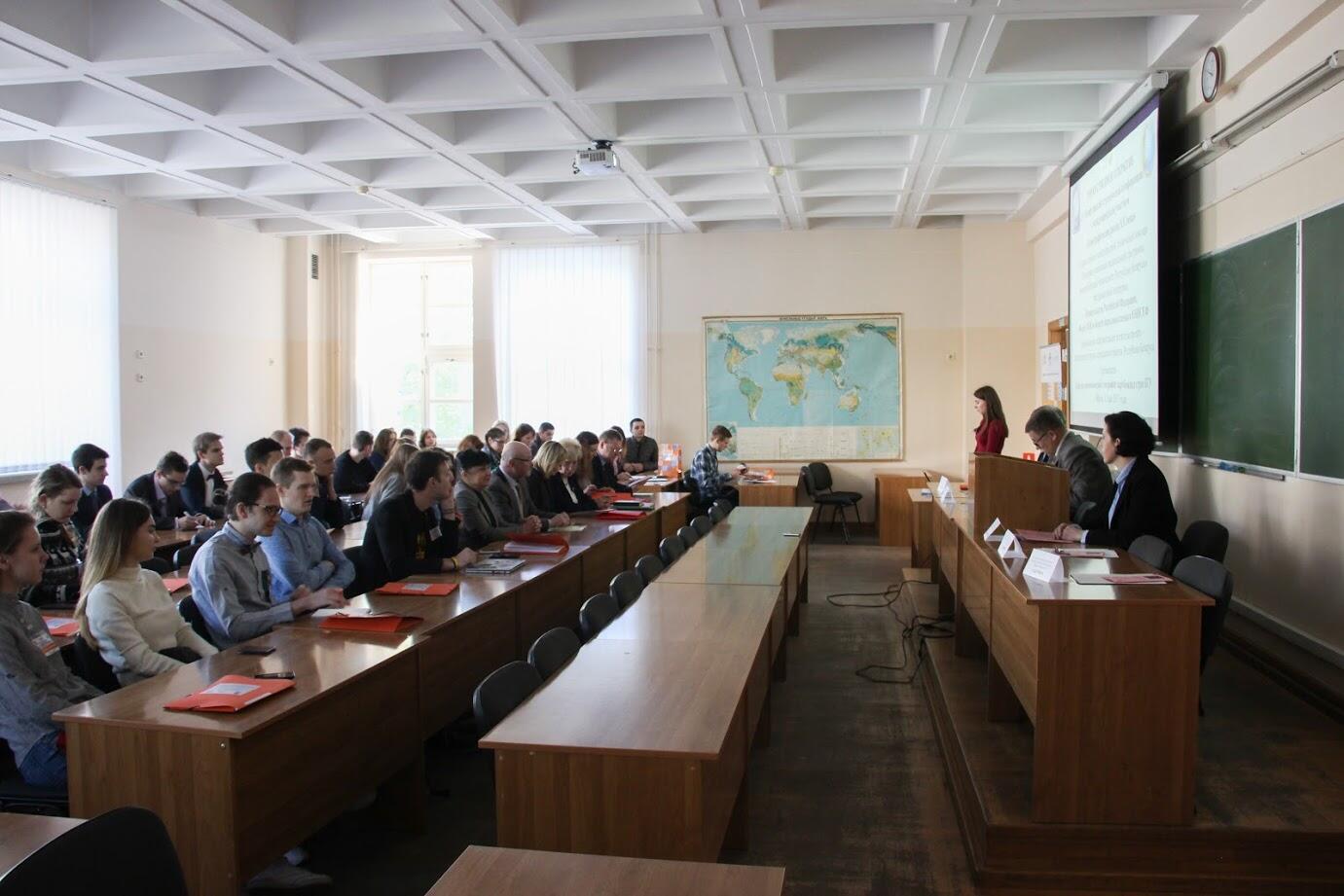On May 12, 2017, Minsk hosted the IV Interuniversity Student Conference with International Participation “Demographic risks of the XXI century” organized in the framework of the project “Support to the Implementation of the National Programme of Demographic Security of the Republic of Belarus.” The project is funded by the Government of the Russian Federation, the United Nations Population Fund (UNFPA) and the United Nations Children's Fund (UNICEF). The national implementing agency of the Project is the Ministry of Labour and Social Protection of the Republic of Belarus.
The UNFPA Project Manager Marianna Sokolova says, “The cooperation of the BSU School of Geography with the Project “Support to the Implementation of the National Programme of Demographic Security of the Republic of Belarus” began in 2015. Since that time, significant progress has been made in the improvement of demographic education in the Republic of Belarus in the tertiary education sector:
• Faculty members of the School of Geography (Belarusian State University) went on a study tour to Charles University (Czech Republic);
• Students majoring in Geography (Geodemography) attended an educational program in the field of demography at Lomonosov Moscow State University (Russia);
• Building on the study tour and the educational program, three curricula of the three demography-related courses of studies under the Programme of Studies “Geography (Geodemography)” were improved with due regard for the European experience;
• Teaching staff and students of the School of Geography took part in an international conference on migration in Europe at the University of Belgrade (Serbia);
• A computer class/geodemography lab was opened at the School of Geography of the Belarusian State University;
• The Department of Economic Geography of Foreign Countries of the Belarusian State University created a library of demographic literature.
The conference was attended by speakers from the leading universities in Belarus, Russia, the Czech Republic, Ukraine, and Germany. More than 70 presentations were made in the sections “Regional problems of socio-economic development,” “Demographic development and social risks of countries and regions of the world. Migration of population in the context of globalization” and “Regional problems of tourism development. Geoecological aspects of the development of countries and regions of the world.”
"In the conditions when demographic problems are becoming increasingly acute, it is crucial to discuss them, particularly at a youth forum. This is the fourth time that the School of Geography of the Belarusian State University provides such a forum in Belarus,” says Professor Ekaterina Antipova, co-chair of the Organizing Committee, Head of the BSU Department of Economic Geography of Foreign Countries, Ph.D. – “Students from different countries have a unique opportunity to discuss among themselves the most problematic areas in the field of migration and demographic processes, and to express their views on the possible ways of their regulation in the Republic of Belarus.”
Considering the importance of such a topic as “Forecasting demographic processes”, Tomas Kucera, DSc, Professor at the Department of Demography and Geodemography, Charles University (Czech Republic) was invited to deliver a master class “Population Forecasts” at the conference. The organizers are confident that, through the personal interaction with an international expert of such a high level, students were able to acquire important professional competencies in this field.
In the year when the Belarusian capital celebrates its 950th anniversary, the students of the School of Geography presented their project “Minsk Through the Geographer's Eyes 2017”, continuing the BSU Geography School’s tradition of regional demographic studies that dates back to the 1970s. The Demographic Atlas of Minsk, mini-projects “Demographic Image of Minsk” and “Living History and Cultural Heritage of Minsk”, created by students drawing on the official statistics, can serve as a basis for supplementing the socio-economic development programs of the administrative districts of the capital city, adjusted appropriately for the demographic differences and the contents of guided tours.
Conference organizers: Ministry of Education of the Republic of Belarus, Belarusian State University (School of Geography), Moscow Pedagogical State University (Moscow, Russia), Charles University (Prague, Czech Republic).



